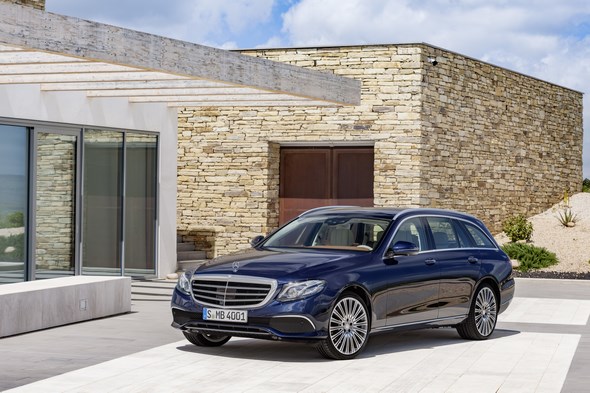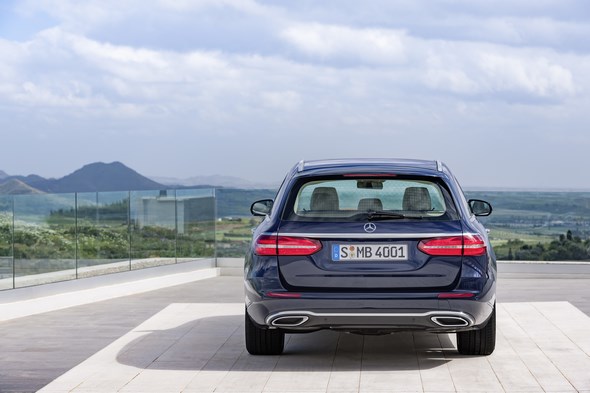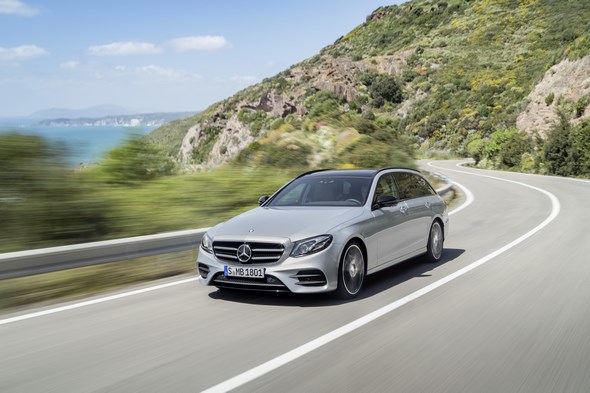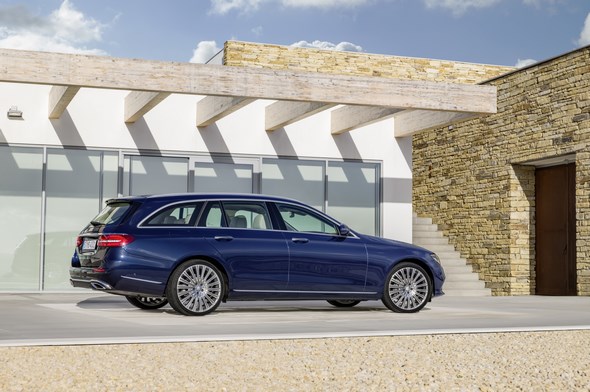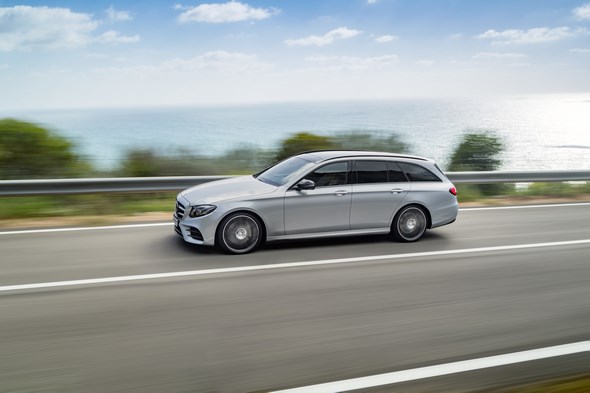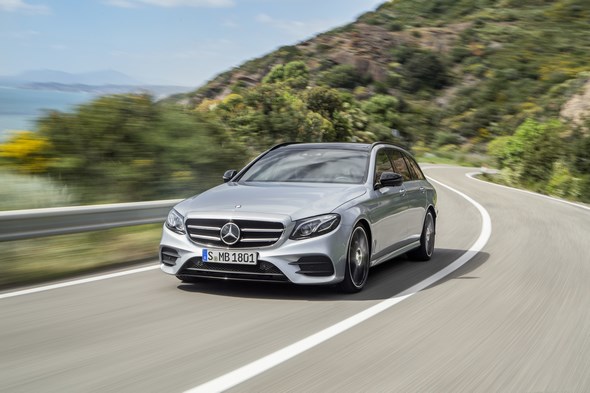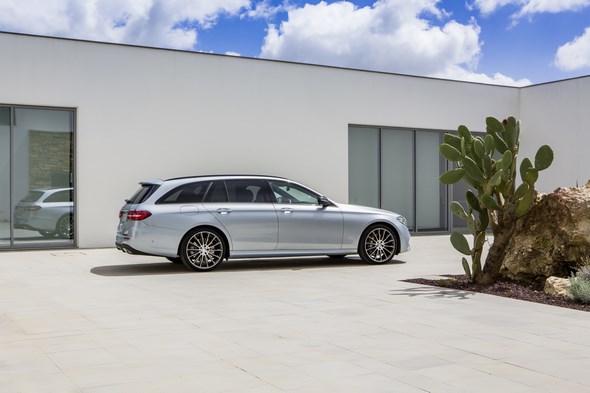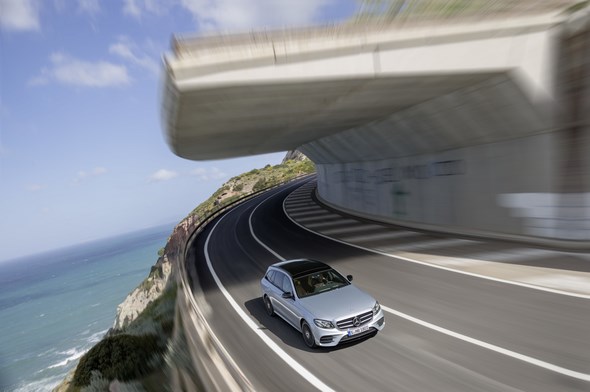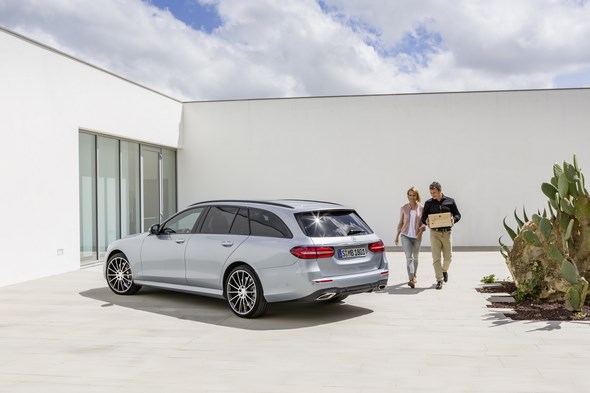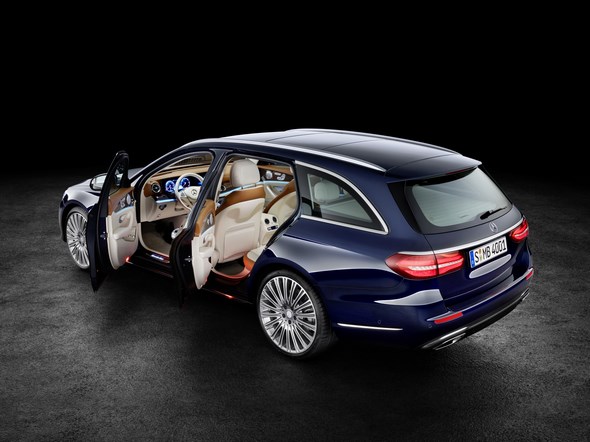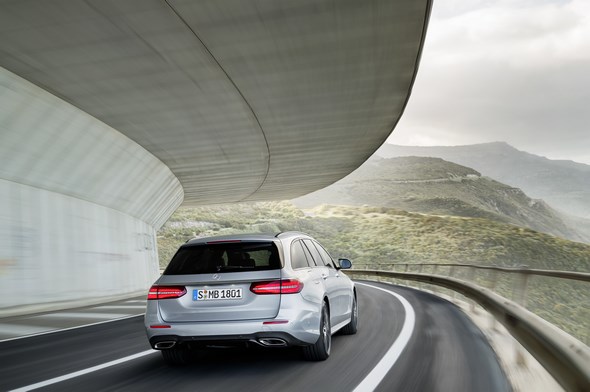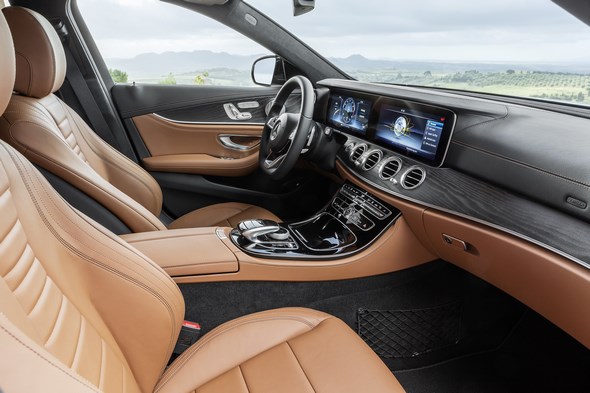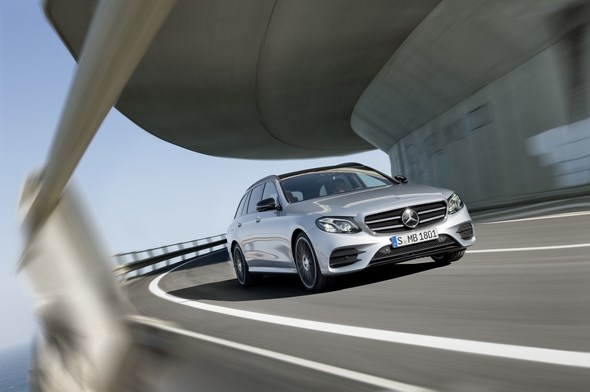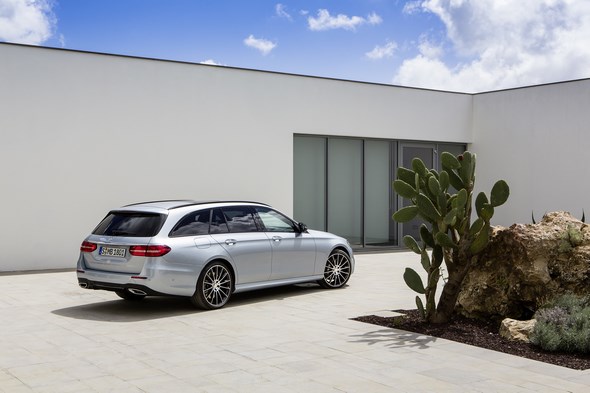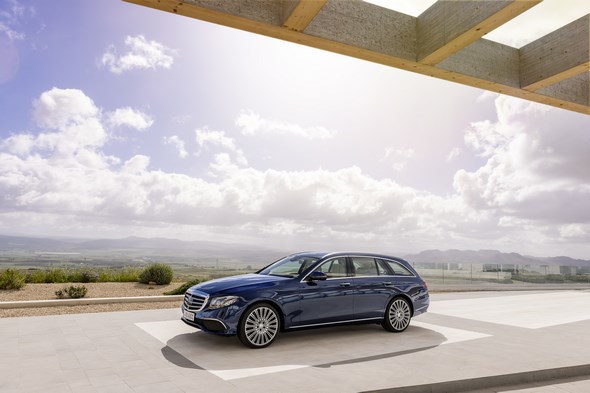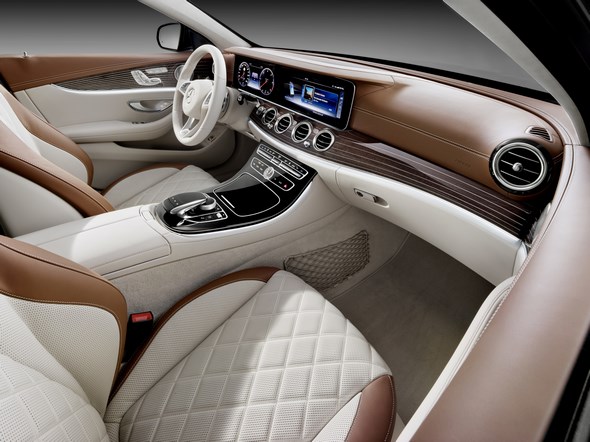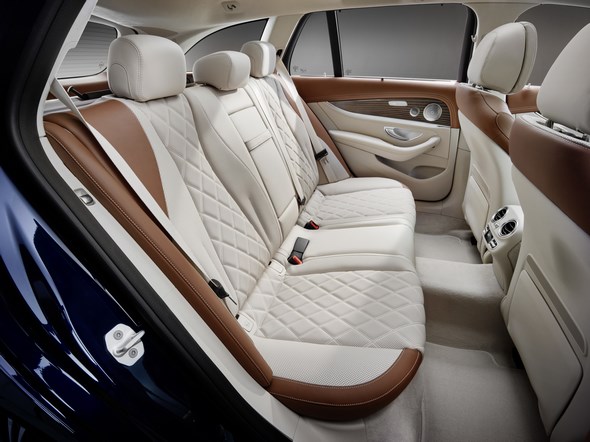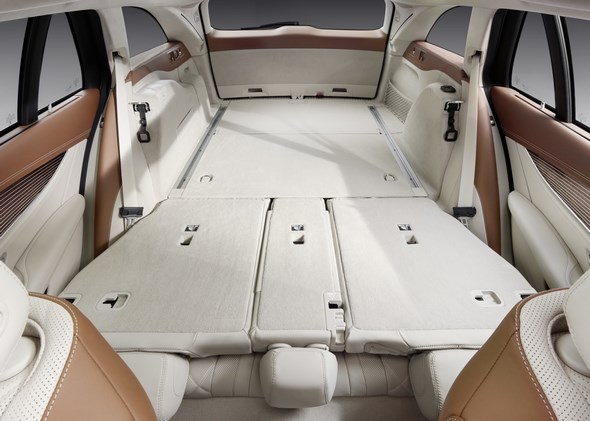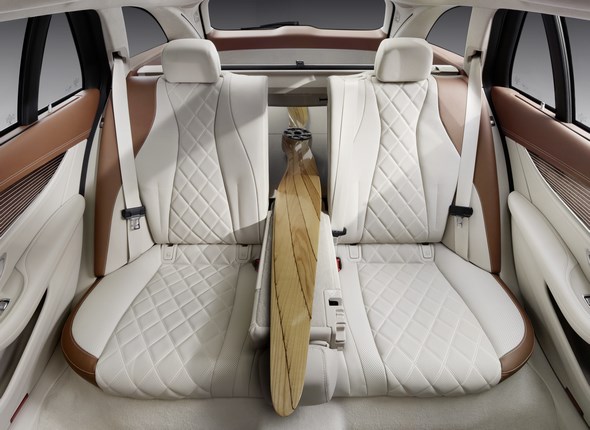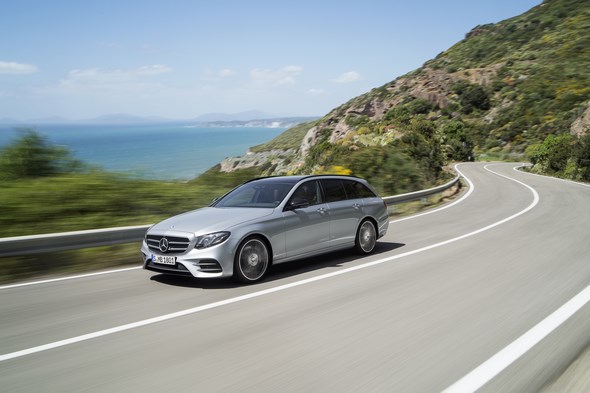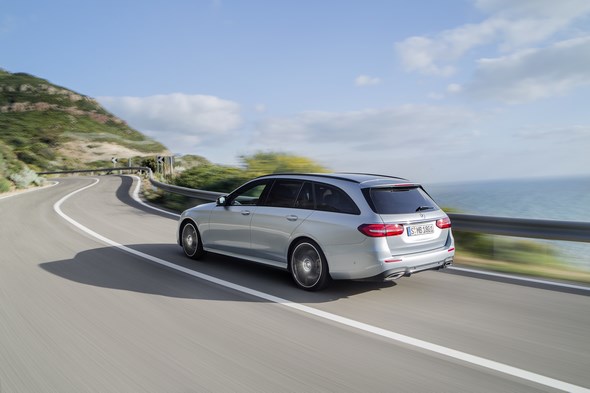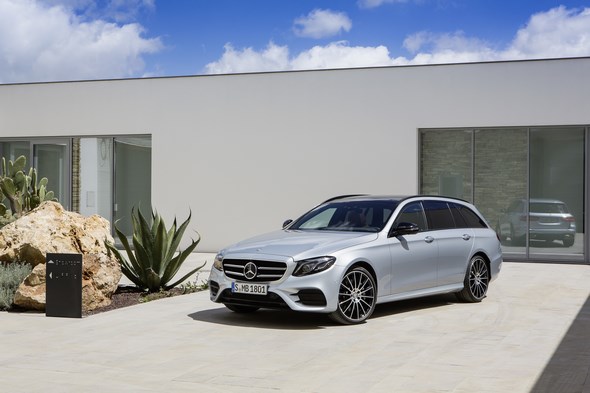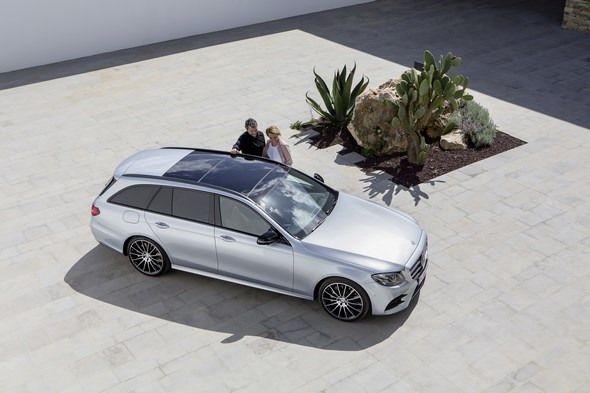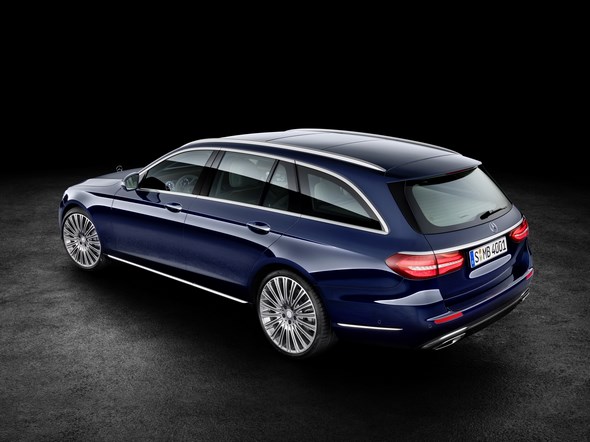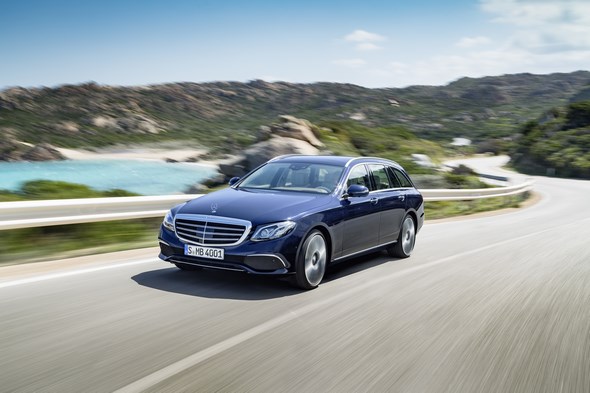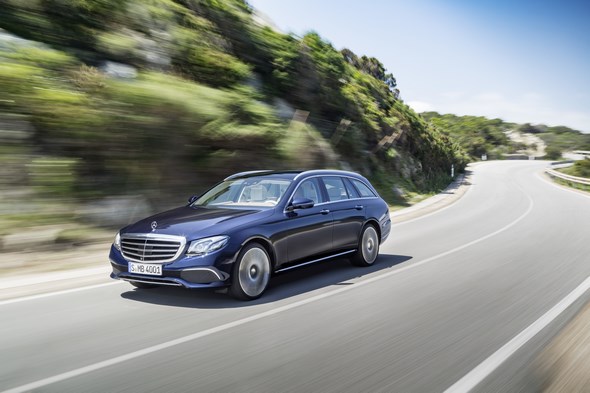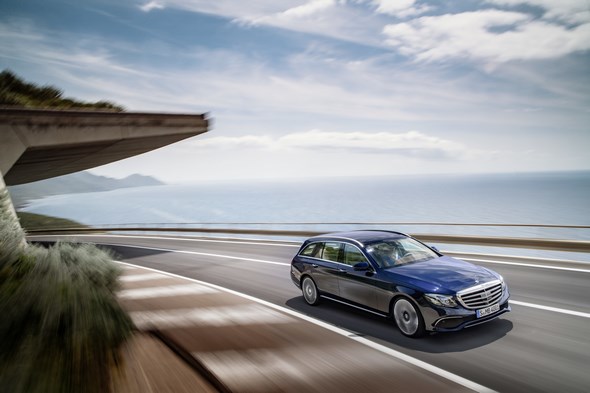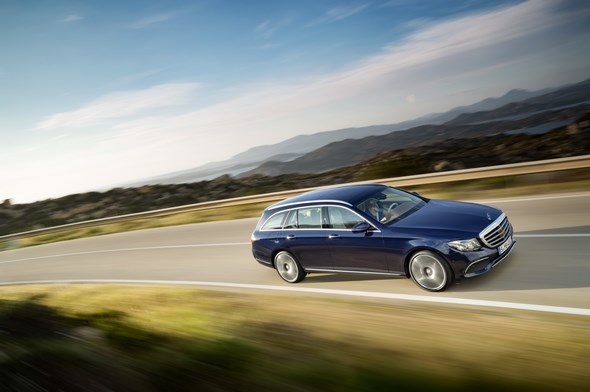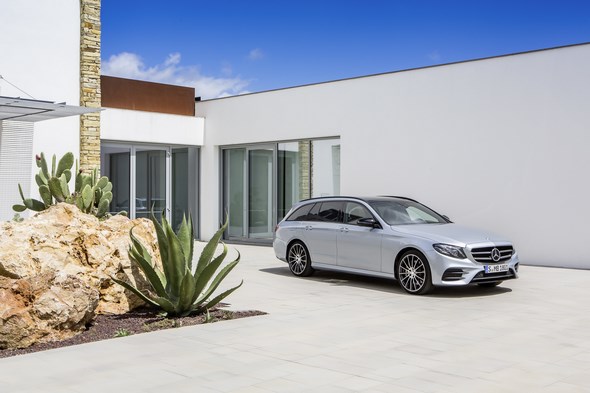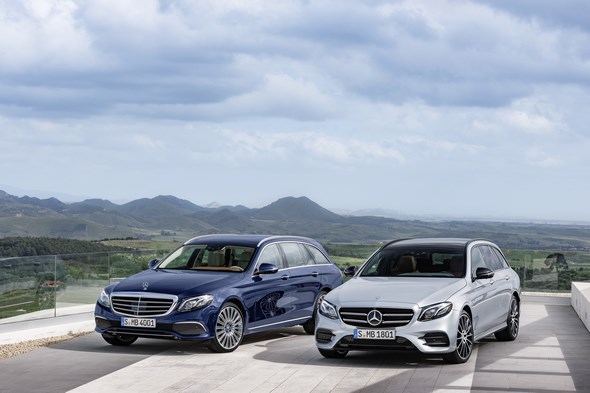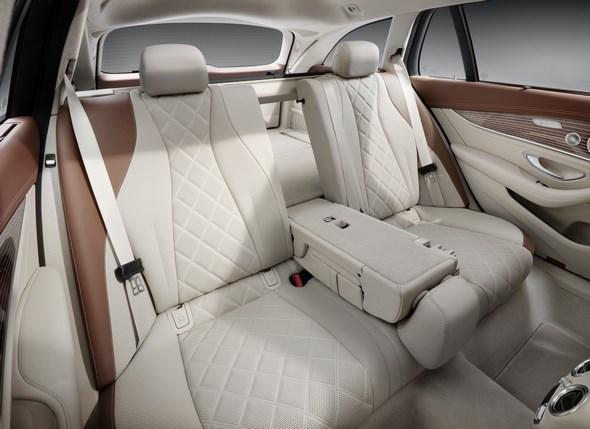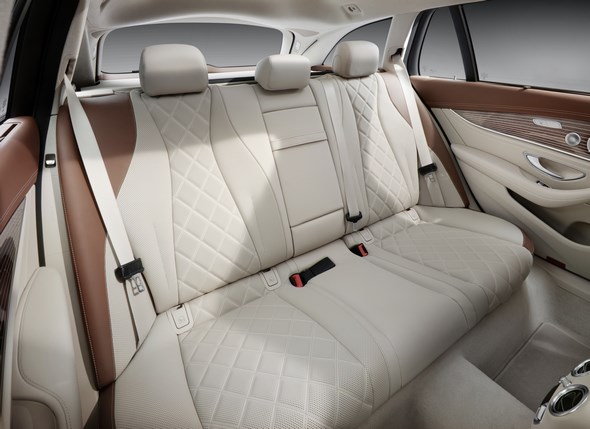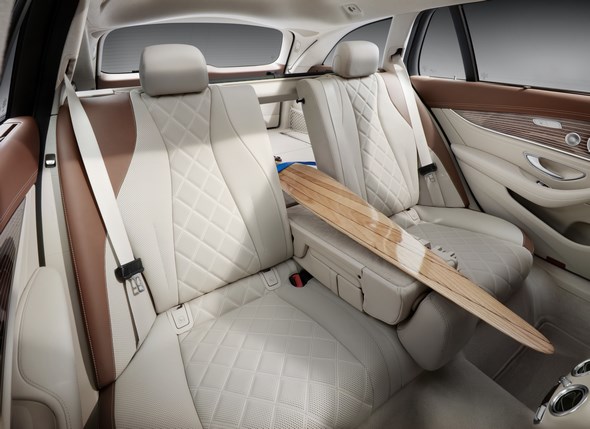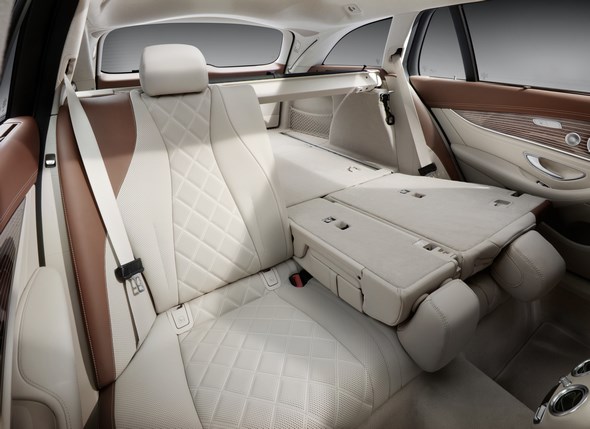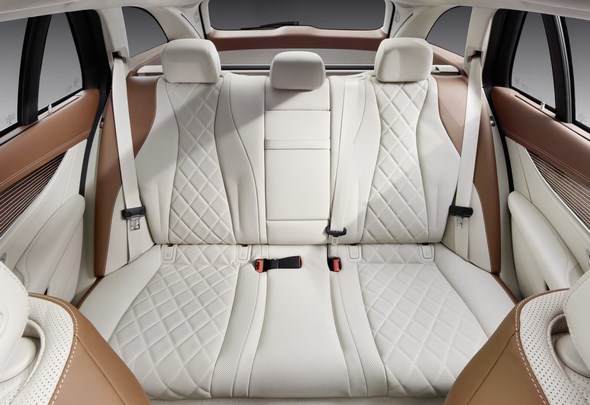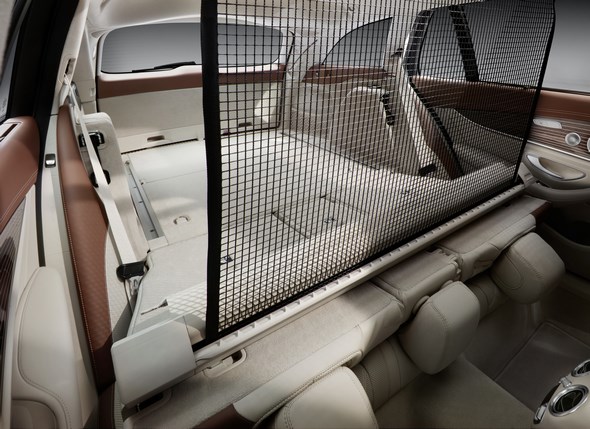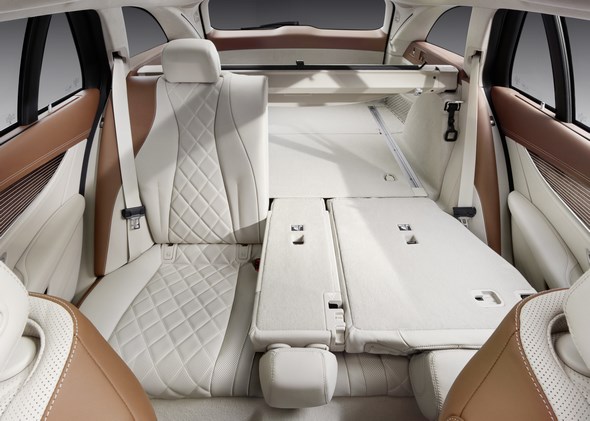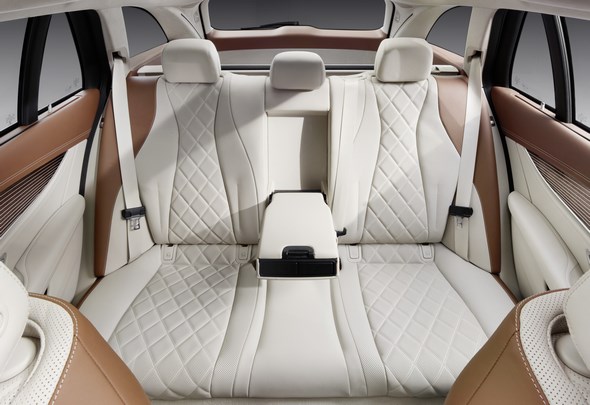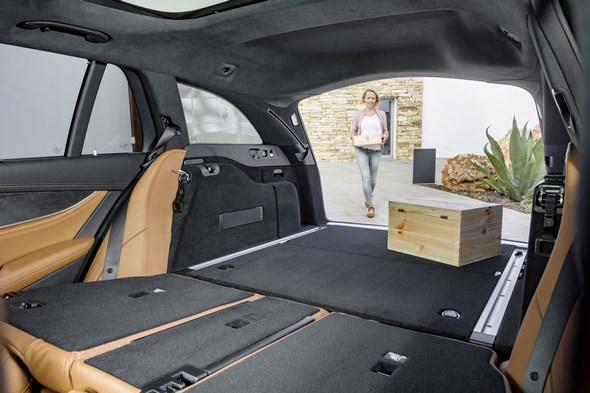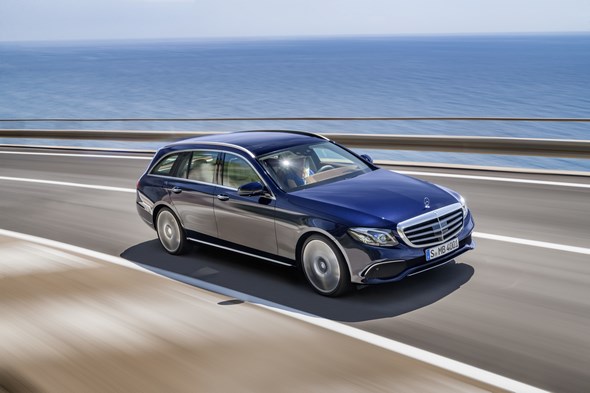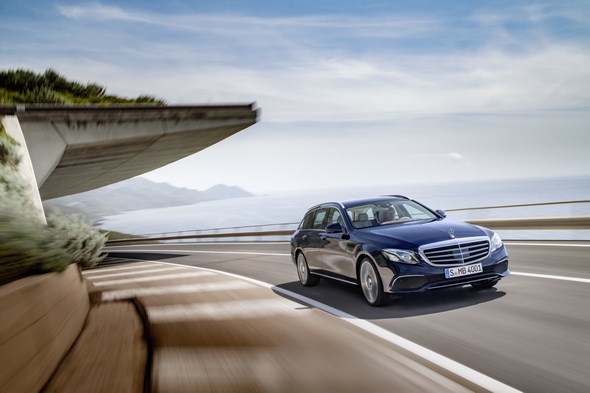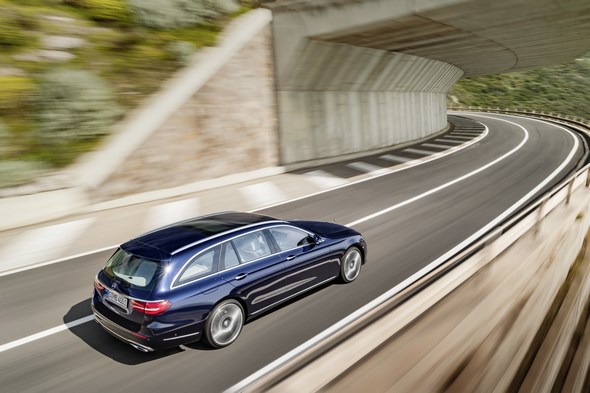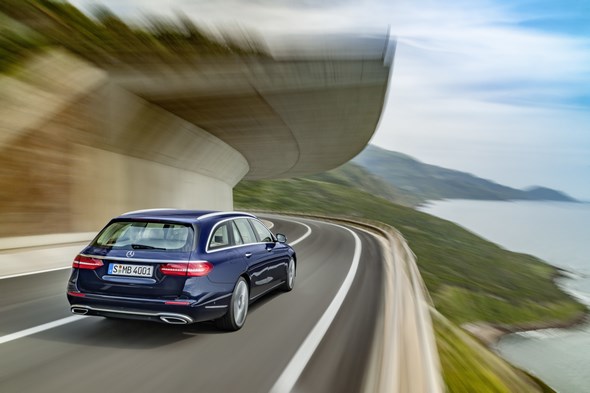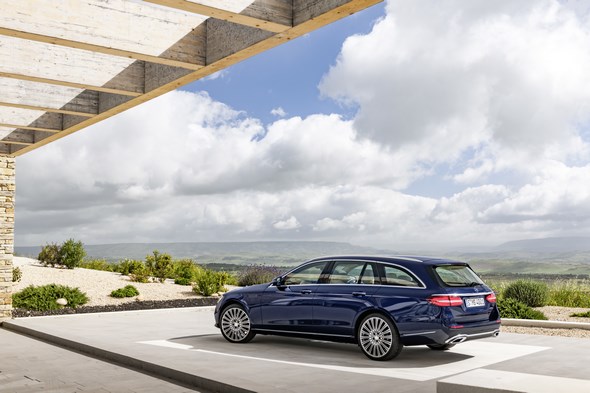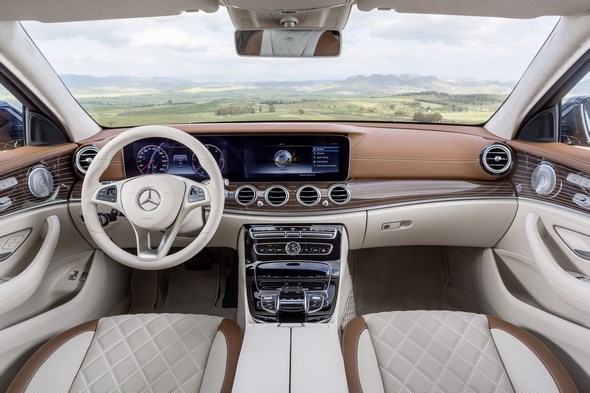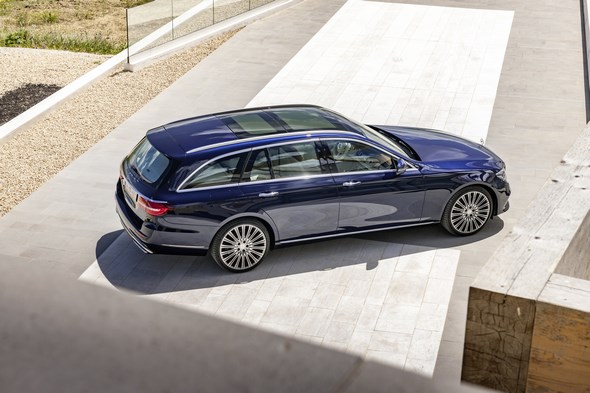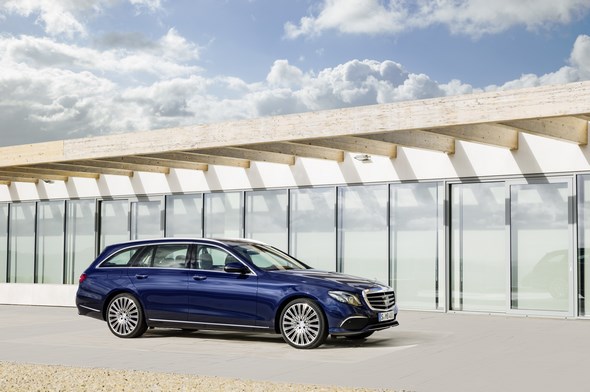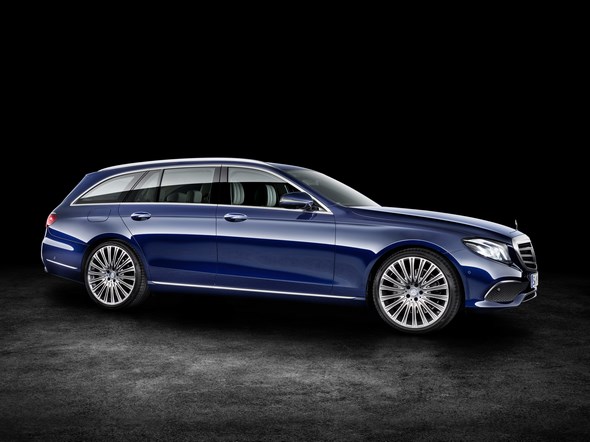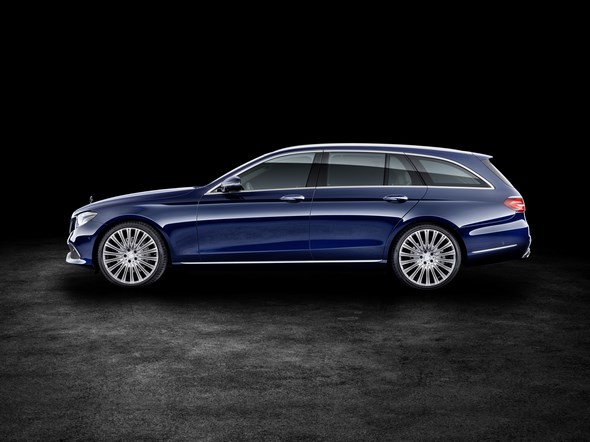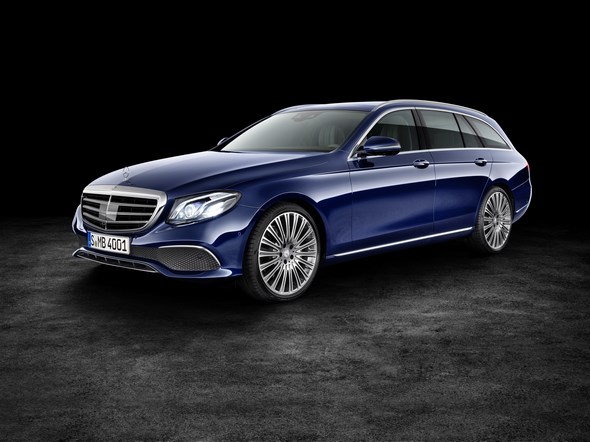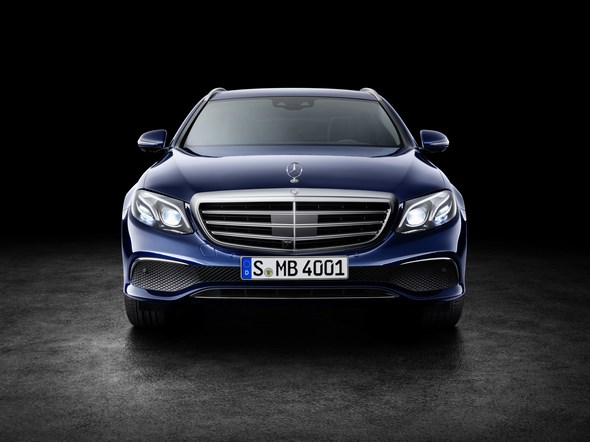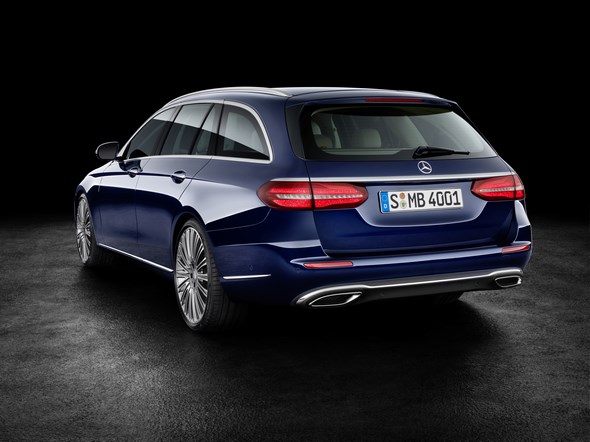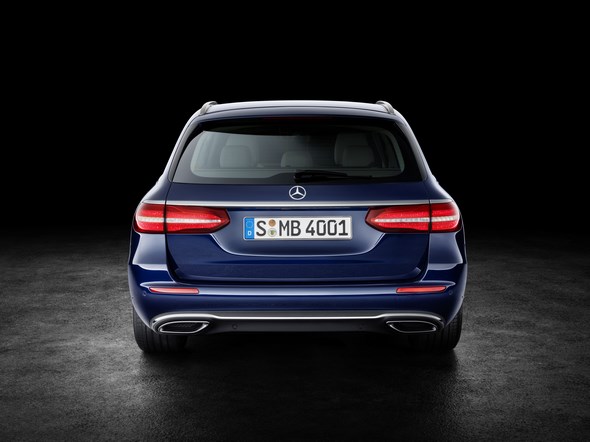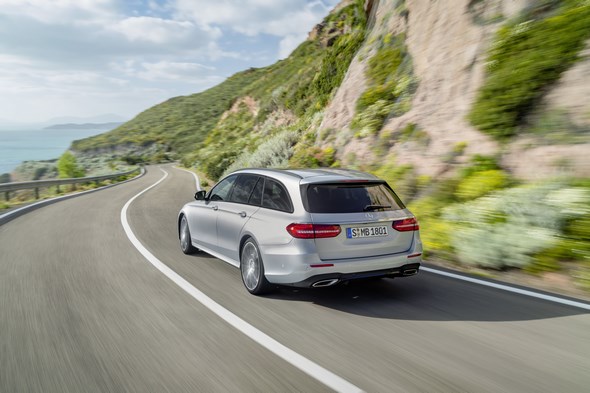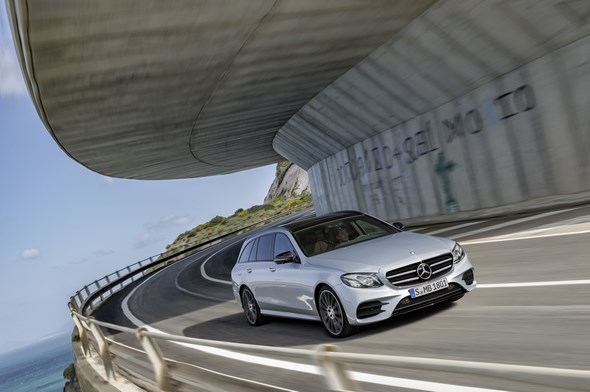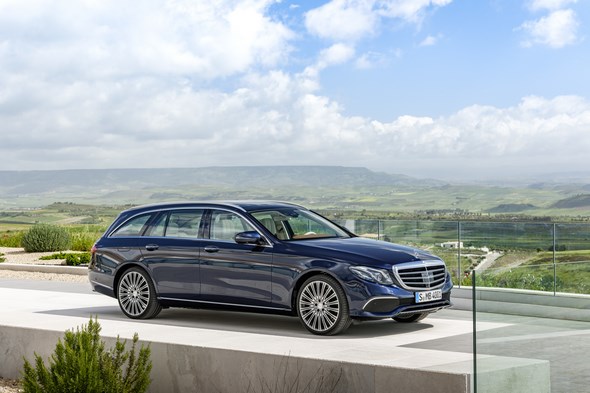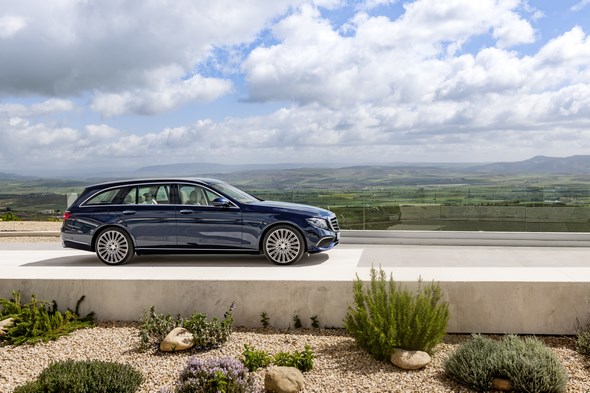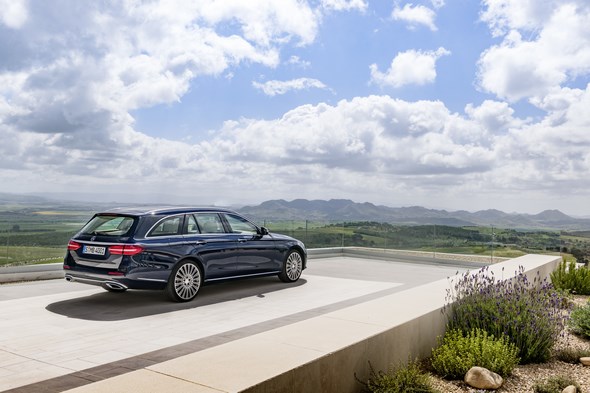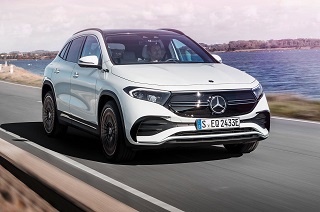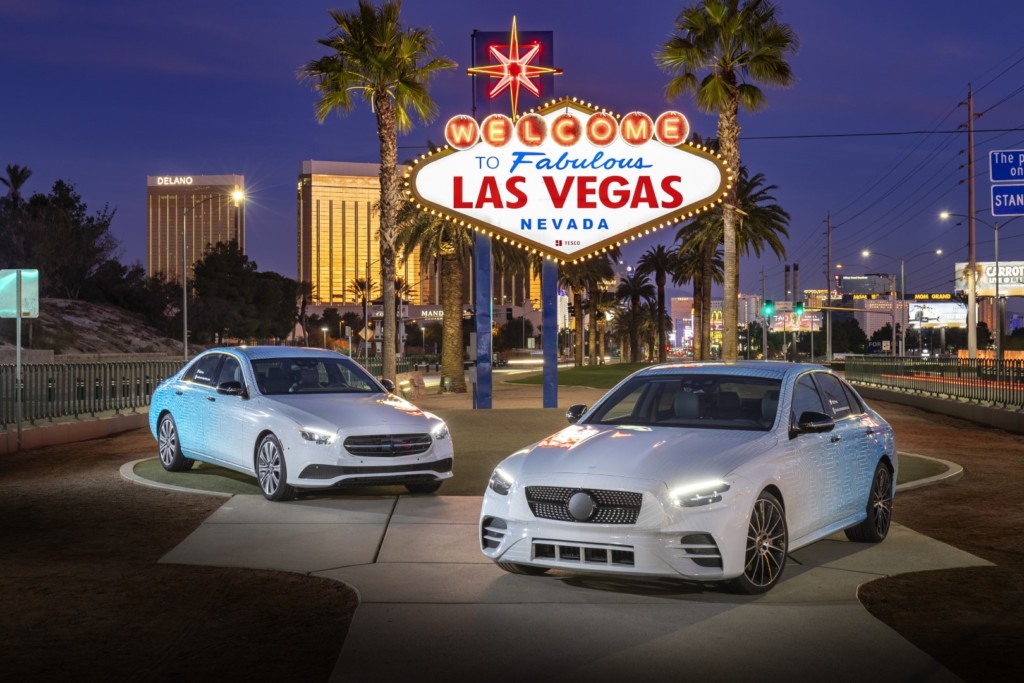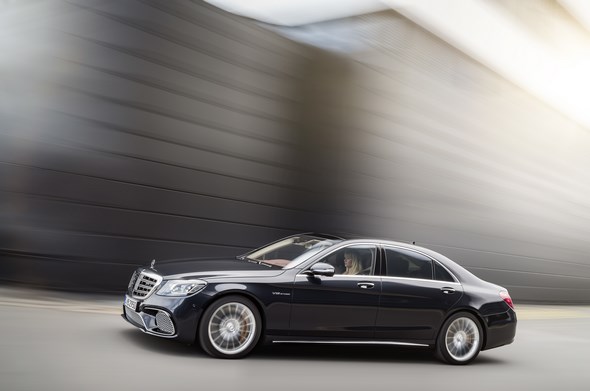The new Mercedes-Benz E-Class Estate

Game, set and space
Stuttgart. The estate version of the new E‑Class is all set to be served up at the MercedesCup tennis tournament in Stuttgart: making its début, the sixth-generation model is as dynamic as the tennis pros and as spacious as centre court.
Innovative engineering and a compelling conception of space make it the most intelligent estate that Mercedes-Benz has ever built.
At the same time, the first performance stage celebrates its première in the shape of the Mercedes-AMG E 43 4MATIC.
In terms of the space on offer, the E-Class Estate continues to be one of the favourites in its segment: it has a cargo volume of up to 1820 litres and, in spite of a much sportier roof line, headroom and elbowroom in the rear are in turn the best in this class.
From as soon as late 2016, the Estate will again be available with a third, folding bench seat for children.
“The new Estate is as dynamic as the Mercedes-Benz brand and as spacious as our customers expect.
Intelligent features such as the cargo position for the rear seat backrest with its 40:20:40 split as standard allow even better use to be made of the generous load-carrying capacity,” says Ola Källenius, member of the Board of Management at Daimler AG and responsible for Mercedes‑Benz Cars Marketing and Sales.
“And what is more, the Estate obviously has all the innovations of the new E Class – the most intelligent executive saloon in the world.”
For the market launch, the new estate will be available in the E 200 model version with a four-cylinder petrol engine (135 kW/184 hp) along with the E 220 d (143 kW/194 hp) featuring an entirely newly developed four-cylinder diesel engine, and the E 250 delivering 155 kW (211 hp) and 350 newton metres of torque.
In the fourth quarter of 2016, the E 200 d will follow with its output of 110 kW (150 hp) accompanied by the E 350 d, which has a six-cylinder diesel engine, and the E 400 4MATIC containing a six-cylinder petrol engine that generates 245 kW (333 hp) and 480 newton metres of torque.
At market launch, all models are equipped as standard with the new 9G‑TRONIC nine-speed automatic transmission.
The first performance stage of this all-rounder is the Mercedes‑AMG E 43 4MATIC Estate, which will likewise be available from the fourth quarter.
With the powerful 295 kW (401 hp) 3.0‑litre V6 biturbo engine, 9G‑TRONIC automatic transmission with shortened shift times, AMG Performance 4MATIC all-wheel drive and model-specific sports suspension, it boasts the AMG brand’s hallmark driving performance and increased agility.
The model line-up at a glance:
| E 200 d | E 220 d | E 350 d | |
| Number of cylinders/arrangement | 4/in-line | 4/in-line | 6/V |
| Displacement (cc) | 1950 | 1950 | 2987 |
| Rated output (kW/hp at rpm) | 110/150 at 3800 | 143/194 at 3800 | 190/258 at 3400 |
| Rated torque (Nm at rpm) | 360 at 1600-2800 | 400 at 1600-2800 | 620 at 1600-2400 |
| Combined NEDC fuel consumption (l/100 km) | 4.2 | 4.2 | 5.4 |
| Combined CO2 emissions (g/km) | 109 | 109 | 140 |
| Efficiency class | A+ | A+ | n/a |
| Acceleration 0-100 km/h (s) | n/a | 7.7 | 6.2* |
| Top speed (km/h) | n/a | 235 | 250 |
Figures for version with 9G-TRONIC, *provisional figure
| E 200 | E 250 | E 400 4MATIC | E 43 4MATIC | |
| Number of cylinders/arrangement | 4/in-line | 4/in-line | 6/V | 6/V |
| Displacement (cc) | 1991 | 1991 | 3498 | 2996 |
| Rated output (kW/hp at rpm) | 135/184 at 5500 | 155/211 at 5500 | 245/333 | 295/401 at 6100 |
| Rated torque (Nm at rpm) | 300 at 1200-4000 | 350 at 1200-4000 | 480 | 520 at 2500-5000 |
| Combined NEDC fuel consumption (l/100 km) | 6.2 | 6.2 | 7.9 | 8.4 |
| Combined CO2 emissions (g/km) | 138 | 138 | 180 | 192 |
| Efficiency class | B | B | C | D |
| Acceleration 0-100 km/h (s) | 8.1 | 7.2 | n/a | 4.7 |
| Top speed (km/h) | 231 | 243 | 250 | 250* |
Figures for version with 9G-TRONIC,*electronically limited
Intelligent load compartment: large, versatile and easy to access
With a capacity of 670 to 1820 litres, the E-Class Estate’s load compartment is one of the biggest in the segment.
As standard, the rear bench seat has new cargo-related functionality: it is possible to position the backrest at an approximately 10‑degree steeper angle.
This creates an additional 30 litres of cargo volume while continuing to enable full use to be made of five seats.
In addition, the rear seat backrest folds down in a 40:20:40 split as standard, opening up plenty of potential configurations between transport capacity and seats.
To release the backrests, there are electric switches located in the load compartment and to the right and left next to the backrests.
The developers paid particular attention to practical dimensions and innovative management of the load space: for instance, the new E-Class Estate is one of the few car models that can accommodate a Europallet.
With a minimum load compartment width between the wheel arches of 1100 millimetres, it was possible to retain the preceding model’s very good measurement.
The proven combined cargo cover and net is back, offering both security from prying eyes and safety. Thanks to the electric drive, the load compartment cover moves upwards when the tailgate is opened.
The EASY-PACK tailgate provided as part of the standard equipment can be opened and closed very easily at the touch of a button for comfortable loading and unloading.
Operation is electromechanical. To prevent the tailgate making contact with the garage roof, for example, it can be halted in any position and its opening angle limited.
Optional KEYLESS-GO with HANDS-FREE ACCESS makes loading even more convenient: all that is required is to make a kicking motion with a foot underneath the rear bumper and the boot lid can be opened and closed fully automatically.
You don’t need to have your hands free or to place any items of luggage on the ground. This ease of operation is now also possible in conjunction with the trailer coupling (optional extra).
The EASY-PACK load-securing kit (optional extra) allows the load compartment to be used in a versatile and safe manner.
This clever solution for managing the load space includes rails in the vehicle floor, fasteners, a telescopic rod and luggage holders.
A self-levelling rear air suspension continues to be part of the vehicle concept as standard. This ensures that the Estate always stays horizontal, even when fully laden (up to 745 kg depending on the model) or with all the towing capacity in use (up to 2100 kg).
With AIR BODY CONTROL, all-round air suspension is available as an option.
The now fully power-adjustable retractable and extendible trailer coupling with ESP® trailer stabilisation and Crosswind Assist (optional extra) also offers a high level of everyday utility.
If the trailer coupling is not needed, it disappears behind the rear bumper. To hitch up a trailer or mount a cycle rack, simply swing it out using the electric controls and automatically keep it in place in the operational position. The controls for this are located in the tailgate or driver’s door.
Exceptionally secure and easy to fit, the holding device for cycle racks is a world first. The trailer coupling has two extra bolts on the ball coupling to support a suitable cycle rack safely. This enabled the load capacity to be increased to 100 kg and four bikes.
Exterior design: dynamic proportions, powerful-looking at the rear
The new E-Class Estate appears modern, confidently stylish and dynamic, and looks like the Saloon model through to the B-pillar.
From the long bonnet, a silhouette emerges that flows excitingly across the long stretch of roof with its sporty curve into the powerful rear of the estate with its steeply tapering rear window.
Short overhangs, a long wheelbase and large wheels make for dynamic proportions. In conjunction with the high beltline, the low, stretched side windows make the vehicle seem longer.
Flowing into the greenhouse, the sidewall’s positively exaggerated lines extend powerfully towards the rear. For the first time, roof rails are organically integrated as part of the standard equipment.
This too emphasises the Estate vehicle’s athletic nature. The rail lines are aluminium-silver in colour.
Completing the exterior form, the rear end has broad shoulders over the rear wheel arches for a sensual look. A roof spoiler with a third brake light (LED) defines how high the broad, functional tailgate can open.
From a visual perspective, horizontal lines at the tail end and the rear window both emphasise width, as do the horizontally aligned, two-piece LED tail lights with integral chrome trim.
Complementing the form, LED reflectors underscore the vehicle’s character by creating a design highlight by day and night. On the tailgate, the wide, chrome-plated handle acts as the visual centrepiece.
As on the Saloon model, the powerful front will vary depending on the chosen design and equipment line.
The base version features the classic Mercedes radiator grille with the star on the bonnet, as does the EXCLUSIVE line with a slightly different design.
The AVANTGARDE and AMG Lines can be recognised by the central star on the sports radiator grille. Each variant of radiator grille gives the E‑Class a distinctive character, be that elegant with an emphasis on status or dynamic.
The design and equipment lines also differ at the rear: the rear bumper on the entry-level model has a black insert with a diffuser look and the exhaust system has no visible tailpipes.
All lines have a multipiece rear bumper with a continuous chrome wing. As standard, all Estate models come with a load sill guard in stainless steel.
Interior design: a synthesis of emotion and intelligence
Inside, too, the Estate utilises the Saloon’s award-winning design. The instrument panel can be adorned with two optional wide, high-resolution and brilliant displays, each with a 12.3-inch screen diagonal. Located under a shared glass cover, they merge to form a widescreen cockpit.
The driver may configure the fully digital display to show the information and views that are relevant for them. There are three different styles to choose from: “Classic”, “Sport” and “Progressive”.
Touch‑sensitive controls on the steering wheel allow the instrument cluster and multimedia system to be controlled at the swipe of a finger and have made their début in the new E-Class.
Further controls are provided in the form of a touchpad with controller in the centre console, which can also recognise handwriting, plus the LINGUATRONIC voice control system.
There are also direct-access buttons for controlling the air conditioning, for example, and for convenient activation and deactivation of certain driving assistance systems.
High-quality materials define the interior style. They include open-pore woods, wood in a yachting look with flowing lines as a contemporary interpretation of inlaid wood and a novel metal fabric.
The use of authentic materials is continued in the optionally leather-covered doors and the beltline.
Another Mercedes hallmark clearly in evidence is the high-quality look and feel created by meticulous attention to detail and craftsmanship.
Just as carefully composed is the material and colour concept with various shades of brown, including attractive colour combinations such as macchiato beige/espresso brown or macchiato beige/saddle brown.
The design and equipment lines include enhanced ambience lighting featuring 64 colours and therefore offer plenty of opportunities for personalised adjustment.
When it comes to the seats, their ergonomic, sculptural form combines Mercedes‑Benz’s hallmark suitability for long journeys with a refined, sporty look, featuring a unique design for each line.
Other new features in this segment are a Heat Comfort package including heated armrests in the doors and on the centre console and the quickly responding seat heating Plus.
Mercedes me connect Concierge Service: personalised attention
Even the standard Mercedes me connect services make life for Mercedes-Benz drivers easier all-round – for example, vehicle diagnostics in the event of a breakdown or an accident.
The new Concierge Service that launches for E-Class models from June gives participating customers a variety of options to obtain personalised support: from making a restaurant reservation to obtaining tips about tourist routes, information on cultural and sporting events and bookings through to sending navigation destinations directly to the vehicle.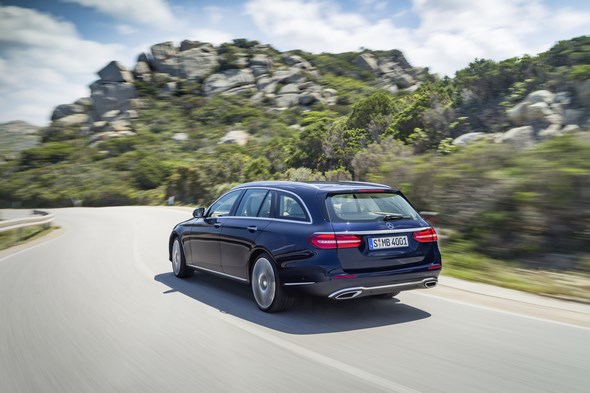
Gaining access is straightforward: registered Mercedes me connect users can establish a telephone connection with the Concierge Service in a preset language in 19 countries across Europe using either the iCall button in the overhead control panel or the connect app. The personal assistant takes care of everything else.
Rear Seat Entertainment System and child safety: practical solutions
In a few simple steps, the rear bench seat in the E-Class becomes a communications centre and a cinema (available from December 2016) courtesy of iPad® Rear Seat Integration Plug & Play.
Preinstallation for Entertainment and Comfort (optional extra) is a necessary prerequisite. The holder available as a genuine accessory from Mercedes-Benz sales intermediaries is simply inserted into the slot provided on the back of the front seats.
The holder can be turned and tilted and facilitates the use of an iPad®. iPad® Rear Seat Integration Plug & Play is available for the iPad® 4, Air and Air 2 models.
Mercedes-Benz is extending its range of high-quality and safe restraint systems for the little ones with the addition of the new KIDFIX XP child seat.
The new model has been developed in cooperation with child seat manufacturer BRITAX RÖMER and is assigned to group II/III, making it suitable for children aged between around four and twelve and in the weight range from 15 to 36 kg.
The backrest of the Mercedes-Benz child seat can be removed in accordance with Euro NCAP requirements.
With its exclusive Limited Black cover, the new model perfectly blends into the Mercedes-Benz E-Class’s interior.
Relieved of much noise and vibration: one of the quietest estate vehicles
In the interior, the new E-Class Estate is one of the quietest vehicles in its class – even though an estate is at a disadvantage by design compared to a saloon due to the large resonating body.
Quiet running and low vibration make a significant contribution to the level of energising comfort, particularly on long journeys.
A whole raft of measures help to reduce vibrations and noise. As on a cabriolet, struts strengthen the main floor and front end of the bodyshell.
For that reason, the vehicle body is very rigid and transmits less noise. Special insulation on the bodywork (including on the bulkhead, sidewalls and main floor), as well as sound absorbers under the rear seats and on the wheel arches, keep noise out of the vehicle interior.
The kinematic design of the chassis, axles and steering system reduces disturbances that can be caused by the road surface, the wheels being out-of-balance or when braking.
Engine and transmission mounts have also been optimised in terms of noise levels and some model versions deploy switchable engine mounts.
Various aeroacoustic measures have been taken. These include sealed door handles, seals on the door joints and optimising details associated with the geometry of the sealing sections for the side windows.
Improvements have also been made to the formed parts for the inside sealing rails so that these are connected to the window run channel without any gaps by positive locking.
As on the E-Class Saloon, the exterior mirrors and A-pillar have also been optimised in terms of aeroacoustics.
The roof structure and the tilt/sliding sunroof module have been aeroacoustically improved to benefit noise comfort in these areas too.
In the case of the panoramic sliding sunroof, multiple wind-deflection measures (wind deflector, covers and seals with the appropriate geometry) ensure the same high level of noise comfort as in the preceding model, despite the larger aperture.
The Acoustic Comfort package is available as an optional extra. A special acoustic film in the windscreen and side windows ensures low levels of background noise in the vehicle interior.
The Acoustic Comfort package contains further sound-insulating measures such as additional insulation in the rear footwell and on the centre tunnel.
To provide excellent heat insulation in the interior, the windscreen, side windows and rear windows are made of laminated safety glass with another layer of film that absorbs infrared.
Surfaces in the interior like the armrests, steering wheel and seats get less hot from solar radiation as a result.
Intelligent Drive: all the E-Class innovations are on-board
As the most intelligent executive saloon, the new E-Class sets new benchmarks in terms of safety, comfort and reducing the driver’s workload.
These innovations are, of course, also available on the Estate. Active Brake Assist is fitted as standard. It is able to warn the driver of impending collisions, provide optimum support with emergency braking and if necessary also autonomously apply the brakes.
In addition to slower-moving, stopping or stationary vehicles, it can also detect pedestrians crossing the danger zone ahead of the vehicle.
Other highlights include the DRIVE PILOT: this system represents Mercedes‑Benz’s next step along the road to autonomous driving.
As Distance Pilot DISTRONIC, it is not only able to automatically keep the car the correct distance behind vehicles in front on all types of road, it can also follow them at a speed of up to 210 km/h for the first time.
The Remote Parking Pilot is also new: for this first time, this system allows the vehicle to be moved into and out of garages and parking spaces remotely using a smartphone app, enabling the occupants to get into and out of the car easily, even if space is very tight.
50 years ago: the first official Mercedes-Benz estate
In August 1966, the Mercedes-Benz Universal made its début within the official Mercedes-Benz sales programme.
This station wagon was built by IMA, a partner in Belgium, on the basis of the 200 D to 230 S fintail models.
Despite innovations such as a split rear seat backrest, self-levelling rear suspension and an optional third row of seats, this variant proved unsuccessful: only 2754 of them were built in the years up to 1969 and the development of a successor based on the Stroke 8 model was abandoned.
New name, new model, new success: the Estate
In April 1978, the Estate 123 model series entered production and a long success story began – well over a million estate saloons have been built to date.
In Germany, the Estate is known as the “T-Modell” and although the “T” suggests tourism and transport, it also stands for trendsetter.
For Mercedes-Benz, the estate model is an integral part of the luxury segment and has a loyal fan base, particularly in Germany.
There has been a “T-Model” in every successive generation of the E‑Class (S 124, S 210, S 211, S 212). Competitors have also followed in its wake, some of them considerably later.

